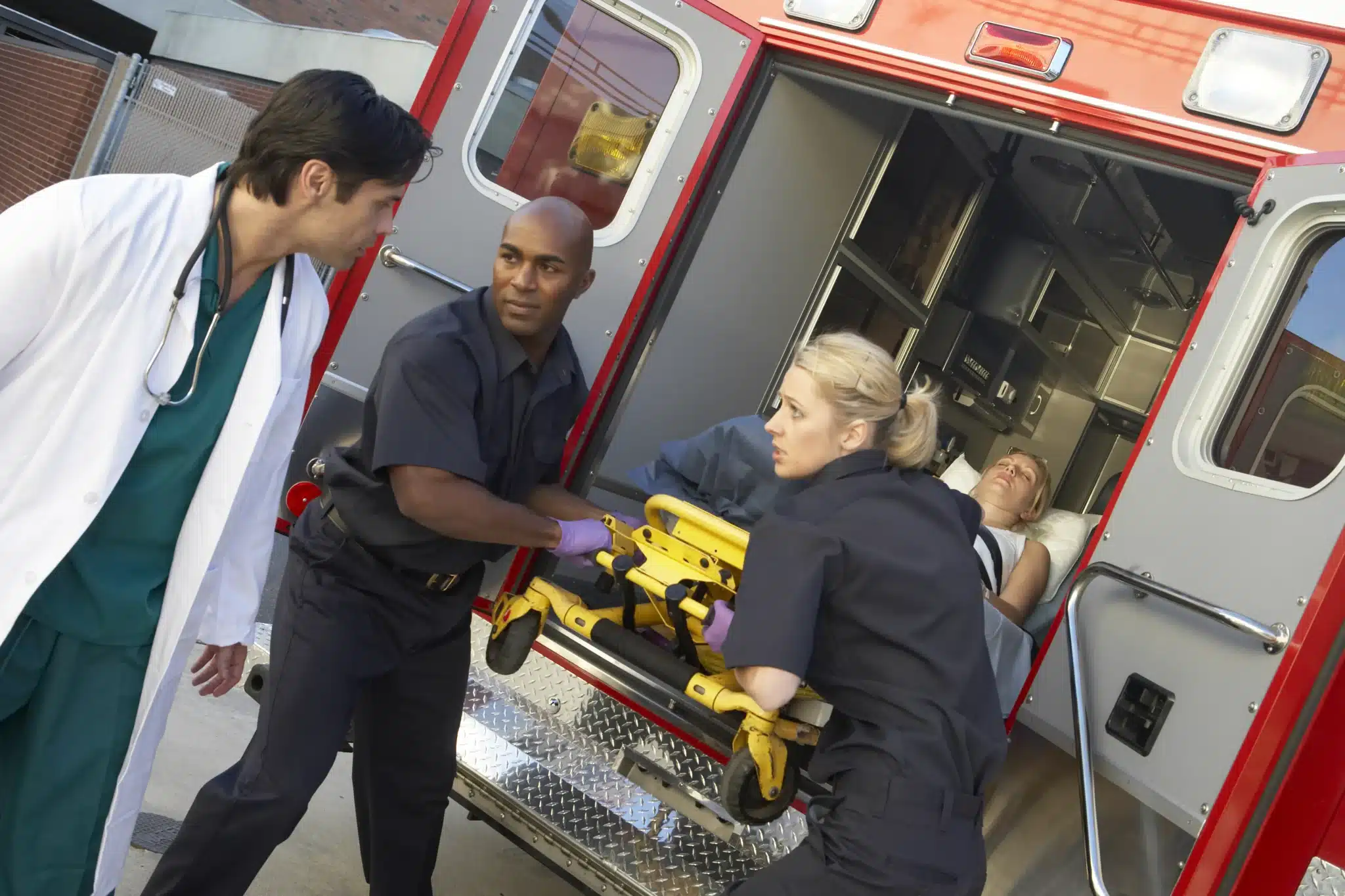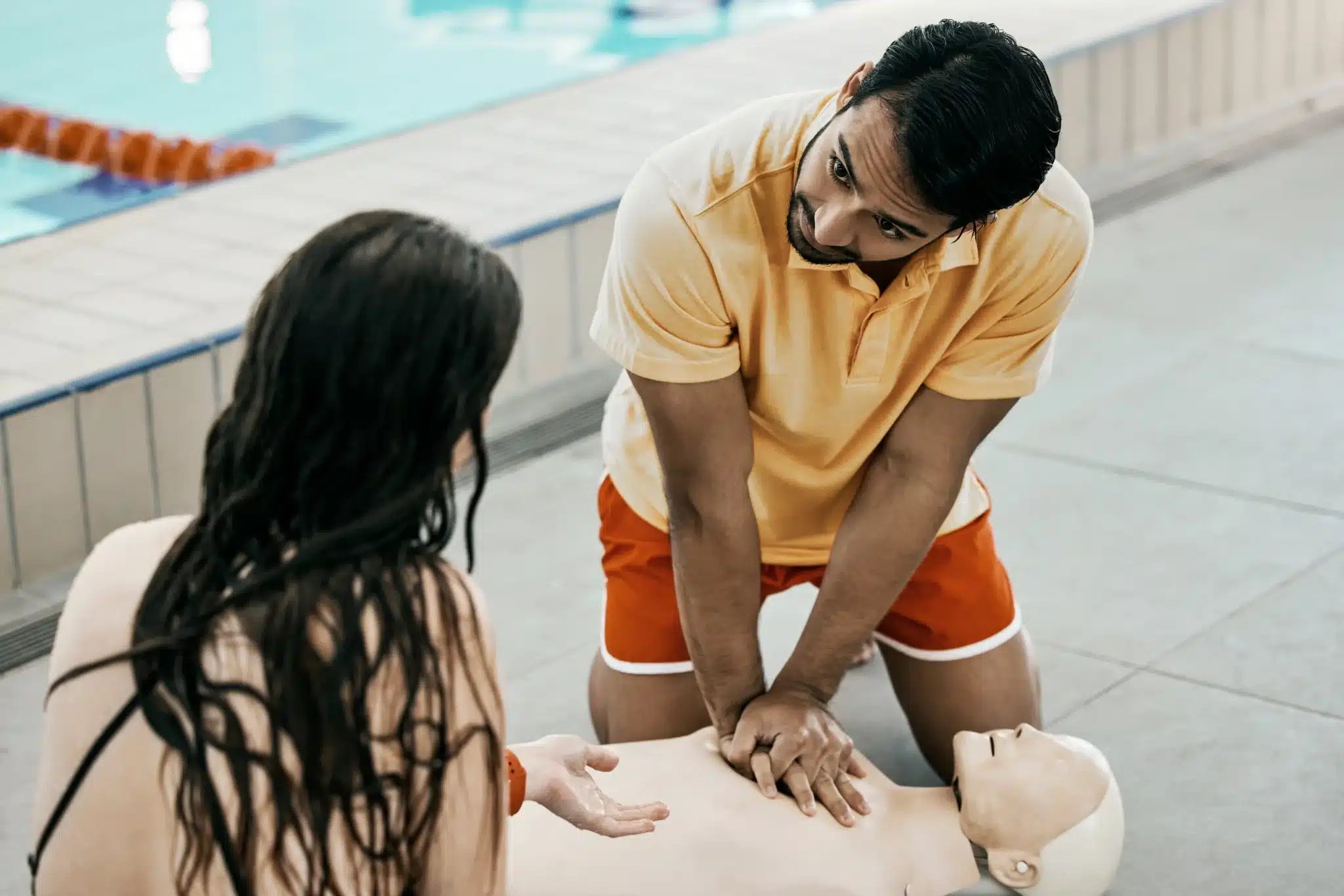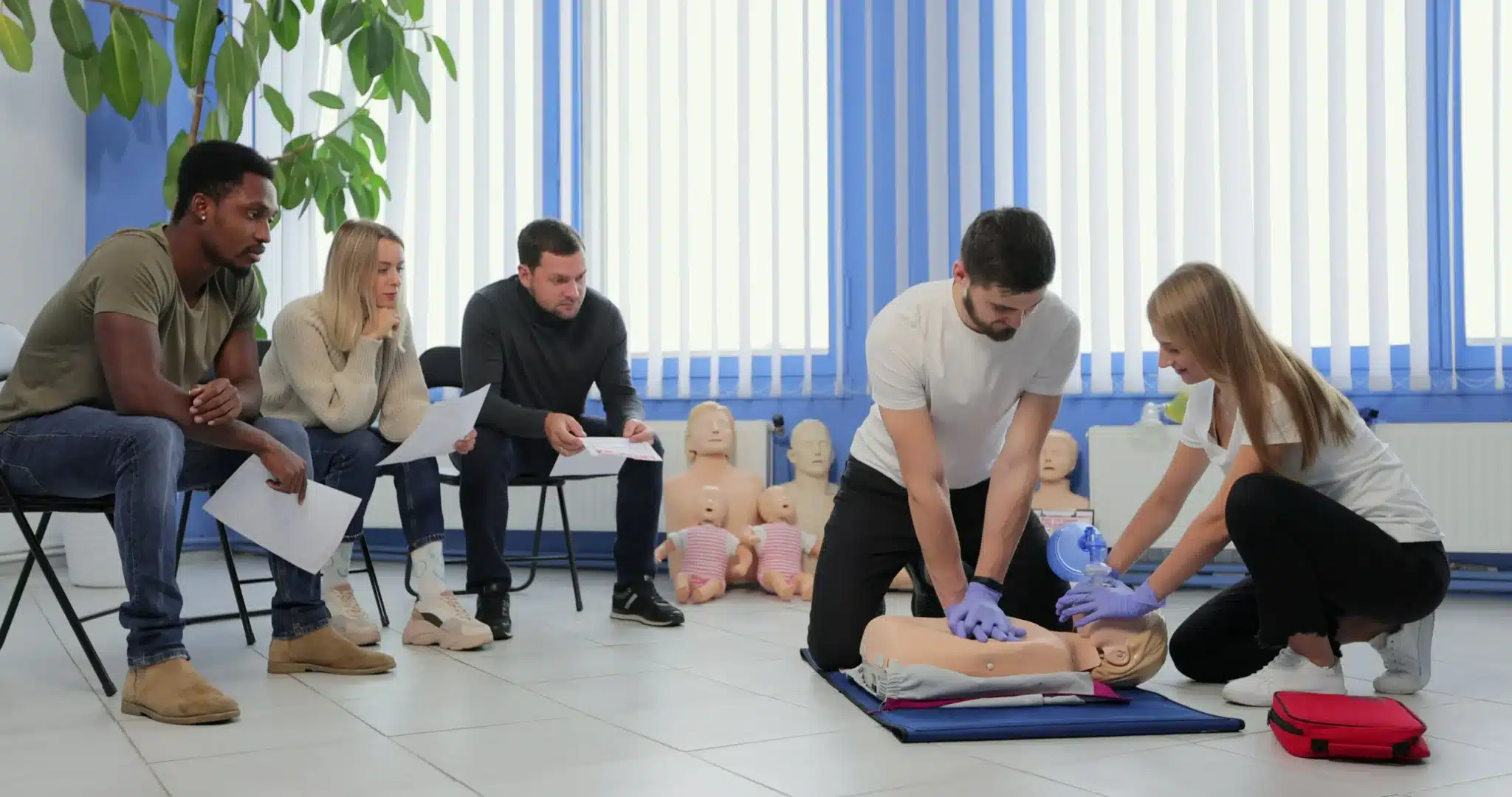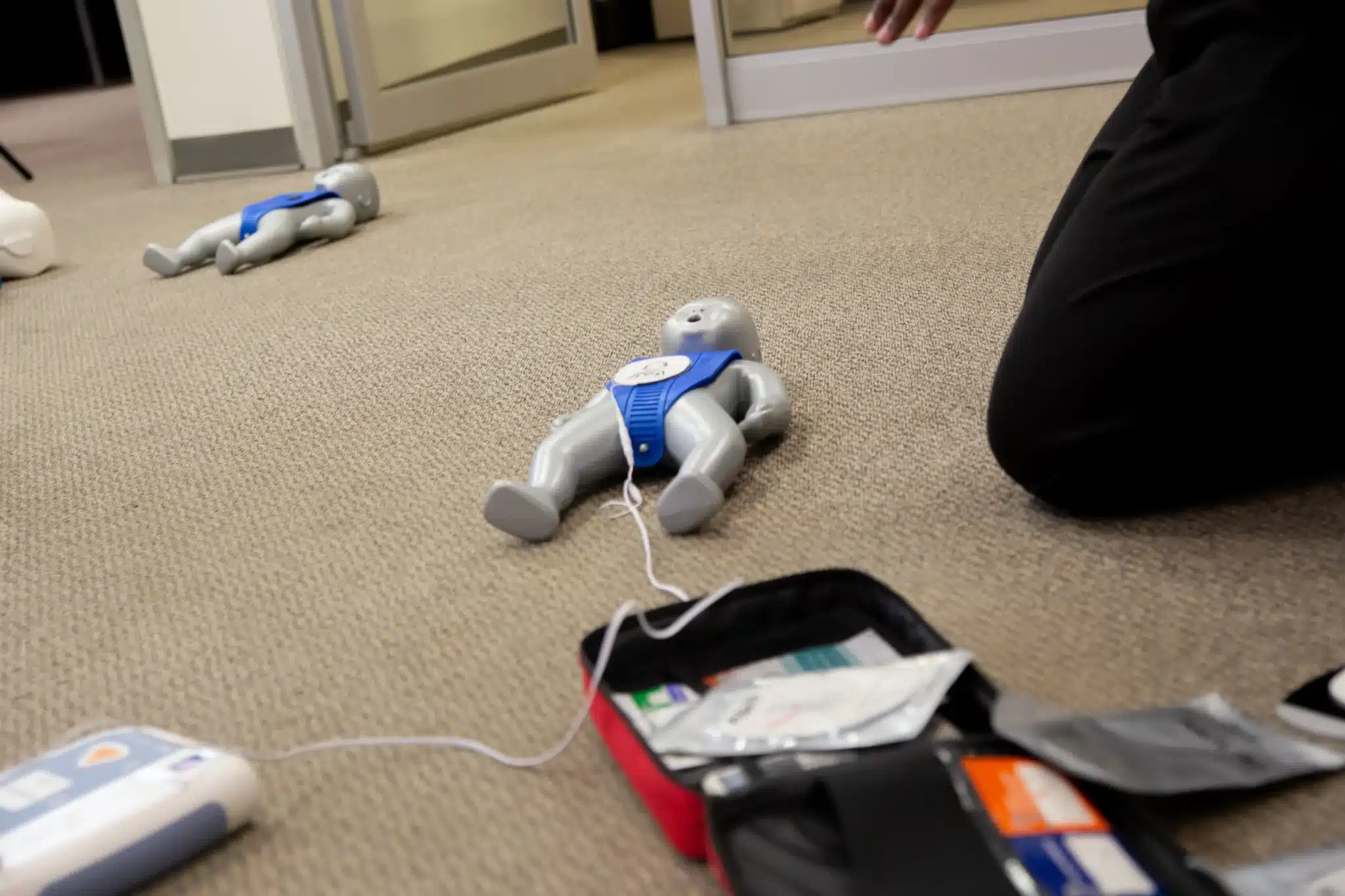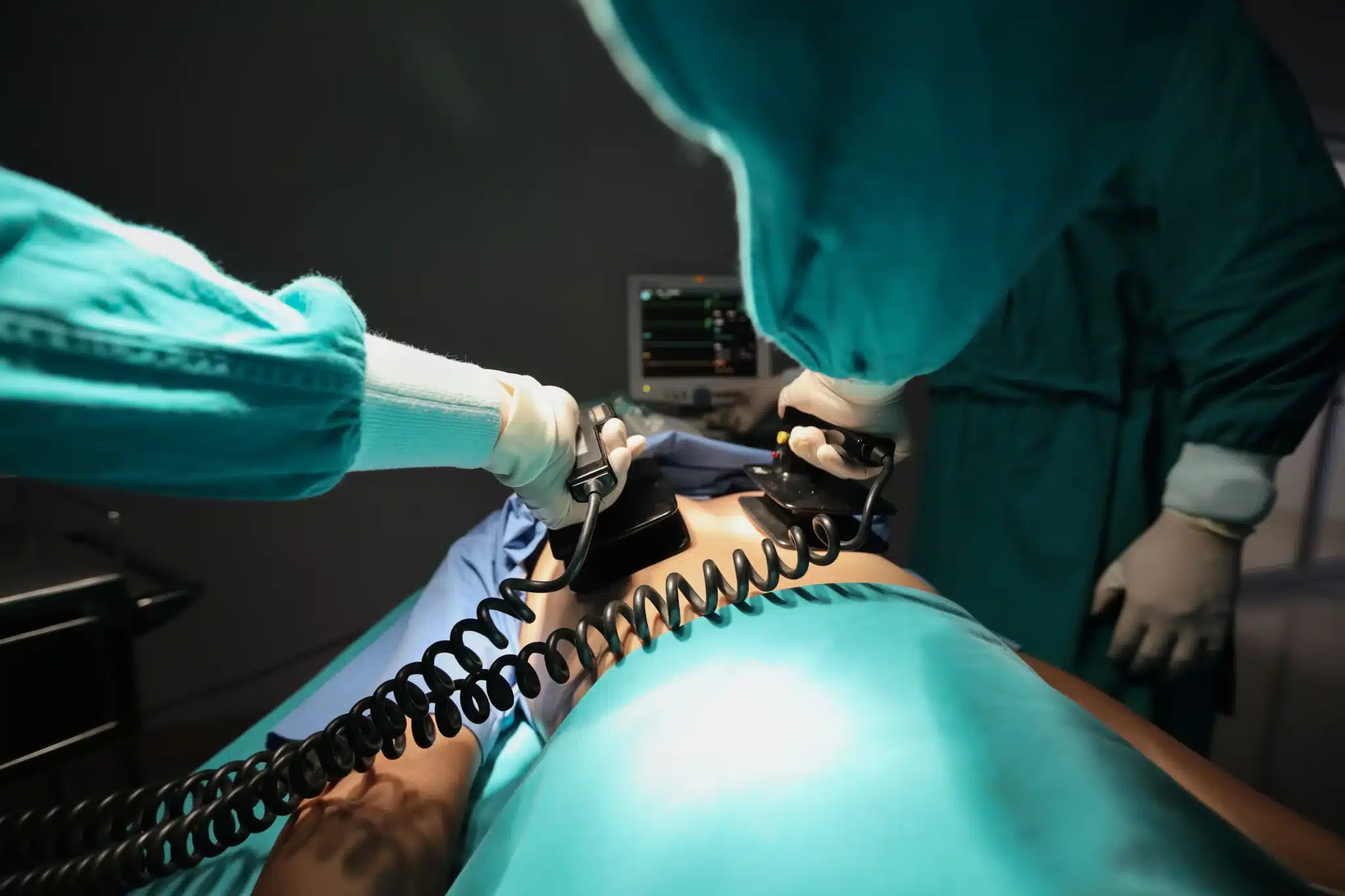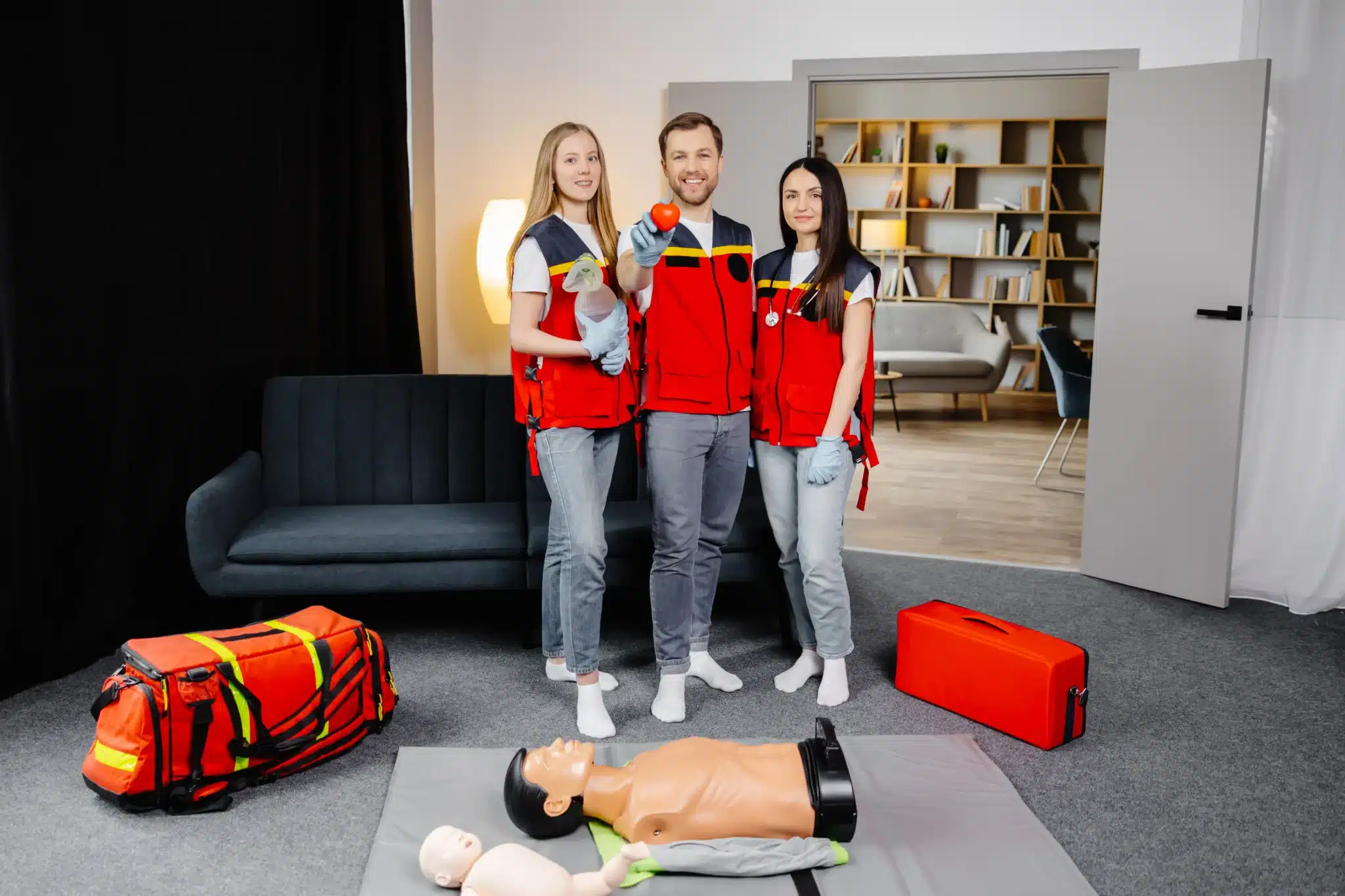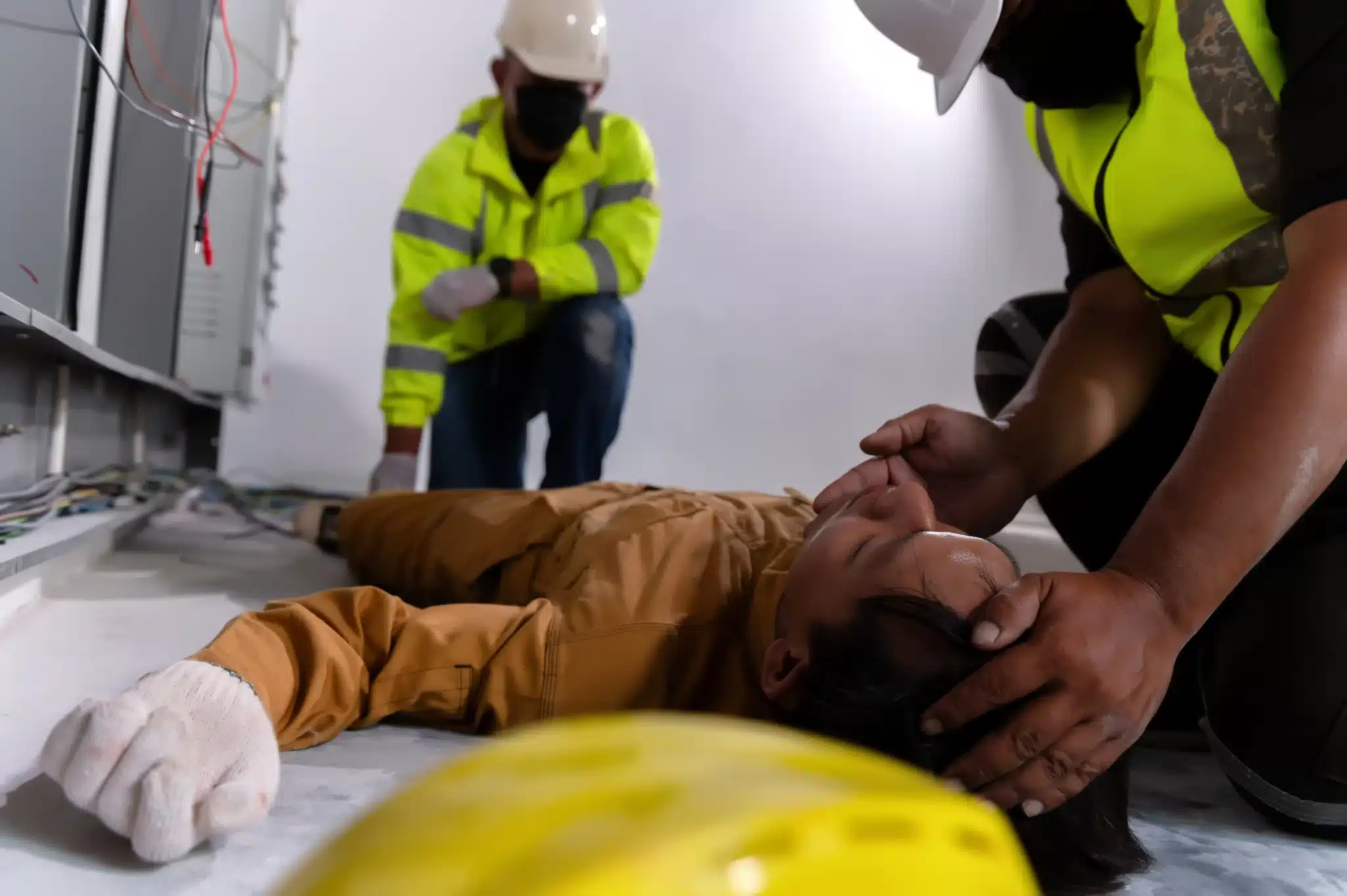Life is unpredictable, and emergencies can happen anytime, anywhere. Being prepared to respond effectively in a medical crisis is an invaluable skill. CPR training in San Jose offers individuals the knowledge and hands-on practice to handle these situations. From basic life support to advanced certifications, there’s a course for everyone. This article will guide you through the different types of CPR training available in San Jose, the cost, what to expect during the course, and how to maintain your certification. Empower yourself with the skills to make a difference—learn CPR and be ready to respond.
Key Takeaways
- CPR skills empower you in emergencies: Learning CPR, regardless of your background, equips you to respond effectively and potentially save a life. Find a course that suits your needs.
- San Jose offers various CPR training resources: Take advantage of the numerous organizations providing CPR certification throughout the city. Explore options to find the best fit for your schedule and learning style.
- Maintain your CPR skills: Keep your certification current and refresh your knowledge regularly to ensure you’re always prepared to help in a medical emergency. Staying up-to-date benefits everyone.
Why CPR Training in San Jose Matters
CPR training is a vital skill that can make a real difference in emergencies. Learning CPR empowers you to respond effectively and potentially save a life. This is especially important in a bustling city like San Jose, where quick response in medical emergencies is critical.
Why Quick Response Matters in Emergencies
When someone experiences sudden cardiac arrest, every second counts. Effective bystander CPR can double or triple a person’s survival rate, giving them a much better chance of making it to the hospital. CPR keeps blood and oxygen flowing to the brain and other vital organs until professional help arrives. Whether you work in healthcare, childcare, or any other field, these skills can make you a valuable first responder in your community. Los Gatos CPR Classes emphasizes how CPR training gives people the confidence and skills to handle these critical situations.
San Jose’s Commitment to Community Safety
San Jose shows its commitment to community safety by offering a variety of CPR training resources. Organizations like the Emergency and Health Training Center provide comprehensive, American Heart Association-certified courses in essential life-saving practices. These courses cover important certifications, including CPR, BLS, ACLS, PALS, and First Aid, making sure residents have access to high-quality training. Fremont CPR Classes, a woman-owned business, also offers AHA-certified courses with an emphasis on excellent instruction, convenient scheduling, and group discounts. This commitment to accessible and affordable training makes it easier for people throughout San Jose and the surrounding areas to learn these life-saving skills.
CPR Courses in San Jose
CPR classes in San Jose offer a range of options to suit different needs, from basic life-saving skills to advanced medical certifications. Whether you’re a concerned citizen, a childcare provider, or a healthcare professional, there’s a course designed for you. We offer CPR training in over 60 cities, and our Fremont location serves Fremont, Newark, and San Jose.
Basic CPR
Basic CPR training in San Jose focuses on essential skills for responding to emergencies. These courses cover the fundamentals of CPR, including chest compressions, rescue breaths, and recognizing the signs of a cardiac arrest. Basic CPR training is a great starting point for anyone looking to learn life-saving skills, especially parents, teachers, and community members. It empowers you to act quickly and confidently in a crisis, potentially making a life-saving difference.
BLS for Healthcare Providers
BLS (Basic Life Support) certification goes a step further than basic CPR. It’s designed for healthcare providers, such as doctors, nurses, EMTs, and other medical professionals. BLS courses cover high-quality CPR for adults, children, and infants, along with techniques for using an AED and relieving choking. BLS certification is often a job requirement for many healthcare positions and ensures professionals have the skills to respond effectively in medical emergencies. We offer group discounts, so check out our group discount page for more information.
ACLS and PALS for Medical Professionals
ACLS (Advanced Cardiovascular Life Support) and PALS (Pediatric Advanced Life Support) are advanced courses for experienced healthcare professionals. ACLS training focuses on managing complex cardiac emergencies in adults, while PALS addresses the specific needs of infants and children. These certifications equip medical teams with the knowledge and skills to handle critical situations, coordinate care, and improve patient outcomes. Contact us to learn more about our ACLS and PALS courses.
First Aid and CPR
Many training centers in San Jose offer combined First Aid and CPR courses. This comprehensive approach provides a well-rounded skill set for handling various emergencies, from treating minor injuries to responding to life-threatening situations. Learning both First Aid and CPR together allows you to be prepared for a wider range of emergencies, making it a valuable choice for anyone, especially those working with children or in high-risk environments. You can find a CPR class near you by checking our Northern CA CPR Directory. If you have questions or want to discuss your specific training needs, feel free to contact us.
Top CPR Training Providers in San Jose
Finding the right CPR training can feel overwhelming, so we’ve compiled a list of reputable providers in San Jose to help you get started. Each offers different courses, schedules, and learning environments, so you can find the best fit for your needs.
Fremont CPR Classes
Fremont CPR Classes offers a range of American Heart Association (AHA) courses, including BLS, ACLS, and First Aid. They focus on high-quality instruction and convenient scheduling, and also offer discounts for groups. As a woman-owned business, they bring a personalized approach to CPR education. You can contact them to learn more.
American Red Cross
The American Red Cross is a well-known provider of CPR and First Aid training. Their San Jose location offers various learning formats, including in-person classes and blended learning (online coursework combined with in-person skills sessions). This flexibility allows you to choose the learning style that works best for you.
Emergency and Health Training Center
The Emergency and Health Training Center provides CPR training in San Jose, including certifications like BLS, ACLS, and PALS. They offer a range of options to meet diverse needs. For more information, visit their website to explore CPR courses.
San Jose Fire Department
The San Jose Fire Department is a valuable community resource for CPR training. Checking their website or contacting them directly can provide information on upcoming courses and schedules.
Local Hospitals and Medical Centers
Many hospitals and medical centers in San Jose offer CPR certification courses. These courses often focus on BLS (Basic Life Support) certification, which is essential for healthcare providers and anyone working in a medical setting. Contacting local hospitals directly can help you find a course near you.
What to Expect in CPR Training
CPR training equips you with the skills to respond effectively during medical emergencies. Whether you’re a healthcare professional, a childcare provider, or simply someone who wants to be prepared, understanding what a CPR course entails can help you feel confident going in.
Course Content and Certification
CPR courses cover a range of topics, from recognizing the signs of a cardiac arrest to performing chest compressions and rescue breaths. You’ll learn how to use an automated external defibrillator (AED) and understand the importance of the chain of survival. The course length varies depending on the certification level—BLS for healthcare providers has different requirements than a general CPR and First Aid course. The American Heart Association (AHA) offers a variety of courses, so you can find one that fits your needs. For those looking for group discounts, check out our options for group CPR training.
Hands-on Practice and Skill Development
In-person CPR classes offer a significant advantage: hands-on practice. You’ll work with mannequins and practice chest compressions, rescue breaths, and AED use in a simulated environment. This practical experience builds muscle memory and confidence, allowing you to react effectively under pressure. Instructors provide personalized feedback, helping you refine your technique and master these life-saving skills.
Using an AED
AEDs are portable devices that can analyze heart rhythms and deliver an electric shock to restore a normal heartbeat during cardiac arrest. CPR training includes instruction on how to safely and effectively operate an AED. You’ll learn how to assess the situation, apply the AED pads, and follow the device’s prompts. Becoming comfortable with AEDs is a crucial part of being prepared for a medical emergency.
The Chain of Survival
The chain of survival represents the critical steps that improve the chances of survival for someone experiencing cardiac arrest. These steps include early recognition and activation of the emergency response system, early CPR, early defibrillation, and early advanced life support. CPR training emphasizes the importance of each link in this chain and how your actions can significantly impact a positive outcome. Effective bystander CPR can double or even triple survival rates, highlighting the importance of being trained and ready to respond. For more information on CPR training and certification in Northern California, check out this helpful directory. Have questions? Contact us to learn more about our courses.
Cost of CPR Training
CPR training costs vary depending on several factors, including the type of course, the training provider, and whether you opt for individual or group instruction. Understanding these factors will help you budget effectively for your training.
Average Course Prices
Generally, a basic CPR and AED course costs around $35 per person. This typically covers a few hours of instruction and focuses on essential life-saving skills for adults. For more advanced training like BLS for Healthcare Providers, expect to pay a bit more. As you explore options like ACLS and PALS, the investment increases due to the specialized nature of these certifications. Remember, this investment equips you with skills that can make a profound difference in critical situations. Fremont CPR Classes offers competitive pricing on all its courses.
Group Discounts and Promotions
If you’re training with a group, look for providers that offer group discounts. This can be a cost-effective way for businesses, community groups, or even families to learn together. Many providers offer special promotions, so check their websites or contact them directly for the latest deals.
Learning Options: In-Person, Online, and Blended
Your learning style and schedule will influence the type of course you choose. Online CPR training provides flexibility, allowing you to learn at your own pace. However, it often lacks the hands-on practice crucial for mastering CPR techniques. In-person classes offer direct interaction with instructors, real-time feedback, and the opportunity to practice on mannequins. Blended learning combines online modules with in-person skills sessions. Consider which format best suits your needs. For a comprehensive list of CPR training providers in Northern California, check out this directory. For questions about CPR training options in Fremont, Newark, or San Jose, contact us.
Choosing a CPR Training Provider
Finding the right CPR training provider is crucial for a positive and effective learning experience. Here’s what to consider:
Instructor Qualifications and Experience
Experienced, certified instructors bring a wealth of knowledge to the classroom. Look for providers whose instructors have extensive real-world experience and hold certifications from reputable organizations like the American Heart Association (AHA). A knowledgeable instructor can answer your questions thoroughly and provide personalized feedback, making your training more valuable. As mentioned in this CPR Certification guide, course length can vary depending on the provider and the level of certification, so feel free to ask about the instructor’s background and the specifics of the curriculum.
Course Formats and Schedules
CPR training comes in different formats to suit various learning styles and schedules. In-person classes offer hands-on practice and direct interaction with the instructor. Online courses provide flexibility for those with busy schedules, while blended learning combines online modules with in-person skills sessions. Think about your learning preferences and how much time you can commit when selecting a course format. This San Jose CPR class guide emphasizes choosing a format that aligns with your goals and schedule. Consider whether weekday or weekend courses work best for you.
Reputation and Reviews
A provider’s reputation speaks volumes about the quality of training they offer. Check online reviews and testimonials to see past participants’ experiences. Word-of-mouth referrals from friends or colleagues can also be valuable. Providers with a strong track record and positive feedback are more likely to deliver a good learning experience. For example, AllCPR San Jose is known for its comprehensive CPR/BLS certification courses.
Certification Options
Different CPR training providers offer various certification options. Ensure the provider you choose offers the specific certification you need, whether it’s Basic Life Support (BLS) for healthcare providers, CPR/First Aid, Advanced Cardiovascular Life Support (ACLS), or Pediatric Advanced Life Support (PALS). The American Heart Association (AHA) offers various CPR courses for both healthcare providers and the general public. Clarify which certifying body the provider is affiliated with and confirm the certification is widely recognized and accepted in your field. Contact Fremont CPR Classes if you’re unsure which certification is right for you. They can help you determine the best fit.
Maintaining Your CPR Certification
Earning your CPR certification is a significant step, but staying current with your skills and knowledge is crucial. Knowing how long your certification is valid and how to renew it ensures you’re always prepared to help in a medical emergency.
How Long is Certification Valid?
CPR certifications are typically valid for two years. This standard timeframe helps ensure that individuals refresh their skills and knowledge regularly. This helps maintain proficiency in these life-saving techniques. For specific details regarding your certification’s validity, check with your certifying organization, such as the American Heart Association.
Renewing Your Certification
Before your certification expires, it’s essential to sign up for a renewal course. Staying proactive keeps your skills sharp and ensures you’re ready to respond to emergencies. Renewal courses cover the latest guidelines and techniques, offering a valuable refresher. Many providers, including hospitals and medical centers, offer convenient renewal options. Check with Fremont CPR Classes for upcoming courses in your area.
Staying Current with Guidelines
CPR guidelines and best practices evolve with ongoing research. To provide the most effective care, stay informed about the latest recommendations from organizations like the Red Cross and the American Heart Association. These organizations regularly update their guidelines based on scientific advancements. Reviewing these updates periodically, even between renewals, ensures your techniques remain aligned with current best practices. Consider subscribing to their newsletters or following them on social media for timely updates.
Related Articles
- CPR Certification in San Jose: A Complete Guide
- Online CPR Classes in San Jose: Your Guide – Fremont CPR Classes
- Why CPR Matters in Healthcare – Fremont CPR Classes
- RQI in San Jose: Your Guide to Training & Certification – Fremont CPR Classes
- BLS Courses in San Jose: Your Complete Guide – Fremont CPR Classes
Frequently Asked Questions
Why is CPR training important, especially in a city like San Jose?
CPR can significantly improve survival rates in cases of sudden cardiac arrest. Rapid response is crucial in these situations, and having trained bystanders can make a real difference while waiting for professional medical help to arrive. San Jose’s focus on community safety and the availability of various CPR training resources highlight the importance of being prepared for such emergencies.
What are the different types of CPR courses available in San Jose?
San Jose offers a range of CPR courses to meet various needs. Basic CPR training covers essential life-saving skills for the general public. BLS certification is designed for healthcare providers and covers more advanced techniques. ACLS and PALS certifications cater to experienced medical professionals dealing with complex cardiac emergencies. Combined First Aid and CPR courses provide a well-rounded skill set for handling various emergency situations.
How do I choose a reputable CPR training provider in San Jose?
When selecting a CPR training provider, consider factors like instructor qualifications and experience, course formats and schedules, reputation and reviews, and available certification options. Look for experienced, certified instructors, convenient course schedules and formats (in-person, online, or blended), and positive reviews from past participants. Ensure the provider offers the specific certification you need and is affiliated with a reputable certifying organization.
What can I expect during a CPR training course?
CPR training typically involves learning to recognize the signs of a cardiac arrest, performing chest compressions and rescue breaths, and using an AED. Courses also cover the chain of survival, emphasizing the steps that improve survival chances. Hands-on practice with mannequins and real-time feedback from instructors are essential parts of developing the skills and confidence to respond effectively in emergencies.
How long is my CPR certification valid, and how do I renew it?
CPR certifications are generally valid for two years. To maintain your skills and knowledge, it’s essential to renew your certification before it expires. Renewal courses cover the latest guidelines and techniques, ensuring you’re up-to-date with best practices. Check with your certifying organization or training provider for renewal options and schedules. Staying current with evolving CPR guidelines is crucial for providing effective care.
